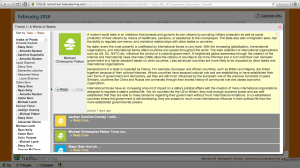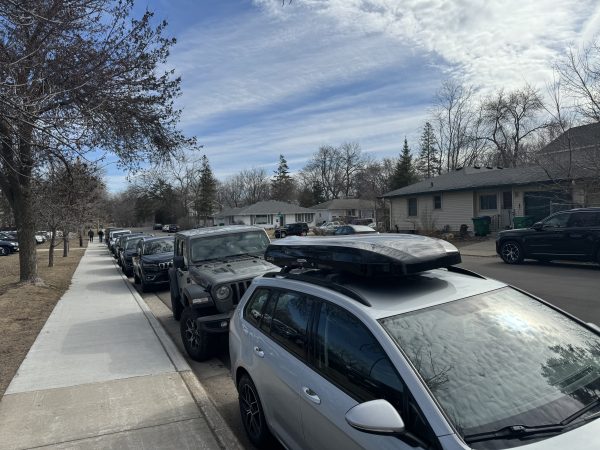Staff Editorial: Online school lacked uniformity and caused stress
Between the Polar Vortex and thick, fast-falling snow, BSM students were treated to a grand total of six unplanned days off. However, “treated” may not be the right word, as only the first two days off were the stereotypical jump-up-and-down-in-your-bed missed school days. The concept of online “school” made sure of that. Instead, students were told to check Haiku, as there would be assignments and lectures posted promptly before 10 am.
Unfortunately, this wasn’t the case. There was a complete lack of uniformity in the whole process; some teachers failed to meet their deadline, others tucked their assignments into the hidden corners of unit pages which, resulted in a plethora of incomplete or misunderstood assignments––making the days off stressful for both students and teachers. The posted work tended to be either the typical “busy” work, or complicated assignments that otherwise would not have existed.
The current purpose of the educational process is to foster learning under the guidance of a skilled professional. Online school completely disregards this quintessential facet of learning by removing the teacher from the scenario. After what should have been a day of rest, students return to school the next day confused, overwhelmed, and behind.
Despite the inefficiency of online schooling, BSM used the opportunity to advertise the benefits of our laptop program. Our school was featured in local newscasts and publications for our seemingly groundbreaking attempt at making the most of the weather. We received undue attention for what was essentially a wasted day of work. Students weren’t given a school day, they were given assignments. There is a stark difference between learning a lesson and blindly attempting to complete an assignment.
Online school was by no means a complete failure, just a process in need of revision. Many faculty members effectively used this type of learning to mimic a typical lesson plan, and provided the resources necessary to carry on normally. For example, math teachers who posted podcasts or video lectures on the day’s material effectively used online school. Ms. Sauer, Ms. Nightingale, and Mr. Picard used these methods well, creating seamless transitions to the next day’s classes.
Teachers like Ms. Gran and Ms. Joseph used Haiku’s online discussion feature to transfer vital interaction from the classroom to the internet. Discussion-based classes require this type of conversation between teacher and students in order to be beneficial. Although typing out responses wasn’t ideal, it was certainly the best option in this situation.
Moving forward, it’s clear that online school will always be the default for unplanned absences, but we seek reform in its implementation. The deadline for posting assignments should be met, and failure to do so should excuse students from completing this work. If students are expected to treat these days as school days, then teachers should as well; teachers should try to make themselves as available as possible via email or haiku, and respond in a timely manner. Full advantage should be taken of the podcast and video component of our laptops, and discussions should be carried out online.
While we are thankful for the work the administration and teachers have put into ensuring our school year is not extended, a more efficient method must be used.



















































Joan S. Petersen • Mar 21, 2014 at 7:54 pm
Congrats Knight Errant staff! A very well-written editorial. I am sure there is a big learning curve for doing online classes on days off and I believe the administration will take your suggestions to heart.
Joan S. Petersen